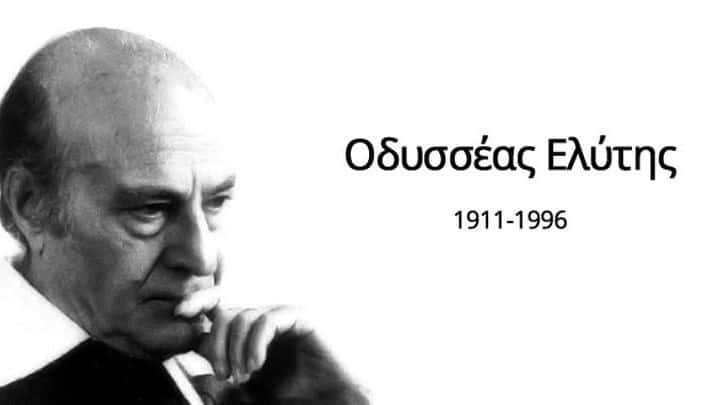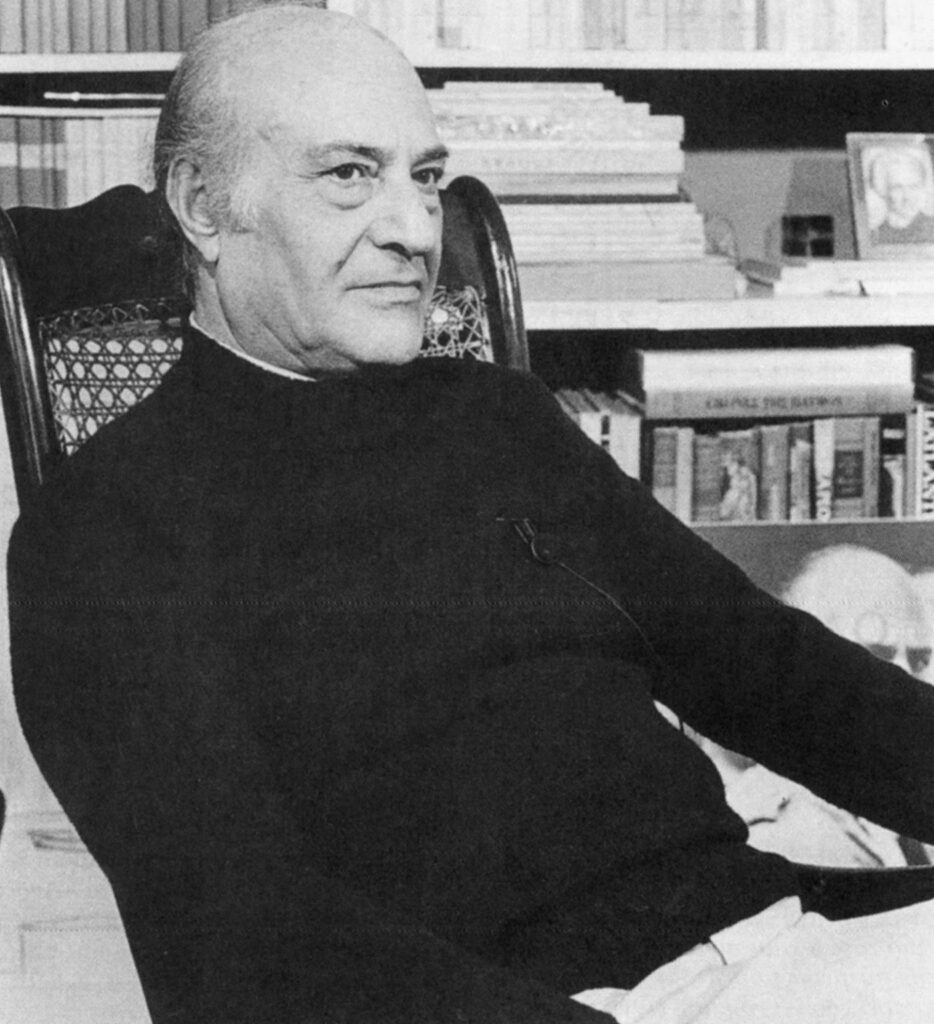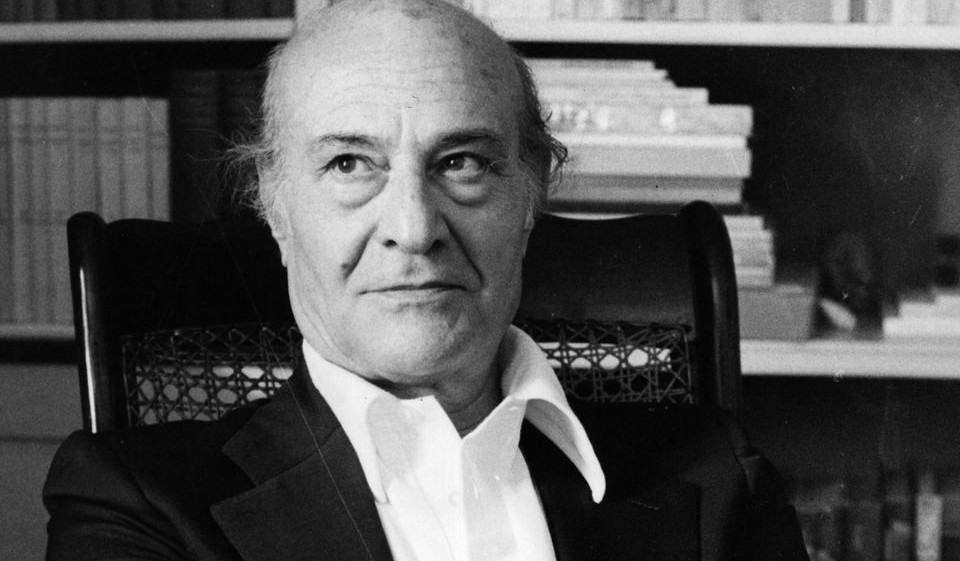Odysseus Elytis (Οδυσσέας Ελύτης) was one of the greatest poets of modern Greece.

He was born on November 2, 1911, in Heraklion, Crete. His surname was Alepoudhelis. He took the name Elytis when he began writing poetry in his early 20's in order to avoid association with the family's prosperous soap-manufacturing business.
The pen name, he said, was derived from a combination of Greek words meaning Greece, hope, freedom and Eleni, the figure in Greek mythology that personifies beauty and sensuality. All these elements appeared in his poetry.
In 1935, Elytis published his first poem in the journal New Letters (Νέα Γράμματα).
In the early 1940's, he was an officer in the Greek army, fighting against Italian fascists in Albania.

His key work, 'To Axion Esti' ("He is worthy"), was published in 1959 and became world famous after it was set to music in the form of an oratorio by renowned Greek composer Mikis Theodorakis.
The poem is a celebration of sea and light and islands in the Aegean Sea, and includes lyric images of his experiences on the front lines when Greek troops drove back invading Italian fascists during the second World War.
Twenty years after it was published, To Axion Esti was singled out for the Nobel Prize by the Swedish Academy as one of the "most concentrated and richly faceted poems" in 20th century literature.
When he won the Nobel Prize at the age of 68, Elytis said: "The Swedish Academy's decision was not only an honour for me but for Greece and its history through the ages. I believe that it was a decision to bring international attention to the most ancient tradition in Europe, since from Homer's time to the present there has not been a single century during which poetry has not been written in the Greek language."
Elytis was the second Greek poet to win the Nobel prize for literature after George Seferis, who received the prize in 1963.

Elytis' work blended ancient mythology and the human condition with surrealism.
His poems were sung by millions of Greeks in tavernas and coffee houses all over the country.
He also wrote many essays and created collages.
Literature:
- “Orientations” (1940)
- “Sun – The First” (1943)
- “An Heroic And Funeral Chant For The Lieutenant Lost In Albania” (1946)
- “To Axion Esti” – “It Is Worthy” (1959)
- “Six Plus One Remorses For The Sky” (1960)
- “The Light Tree And The Fourteenth Beauty” (1972)
- “The Sovereign Sun” (1972)
- “The Trills Of Love” (1973)
- “The Monogram” (1973)
- “Step-Poems” (1974)
- “(Offering) My Cards To Sight” (1974)
- “The Painter Theophilos” (1973)
- “Second Writing” (1976)
- “The Magic Of Papadiamantis” (1976)
- “Signalbook” (1977)
- “Maria Nefeli” (1978)
- “Selected poems” Ed. E. Keeley and Ph. Sherrard (1981)
- “Three Poems under a Flag of Convenience” (1982)
- “Diary of an Invisible April” (1984)
- “The Little Mariner” (1988)
- “What I Love. Selected Poems” (1986)
- “Krinagoras” (1987)
- “The Elegies of Oxopetras” (1991)

Elytis passed away on March 18, 1996, at his home in Kolonaki (Athens) at the age of 85 following a heart attack.
*More on GCT: A new house for the legacy of Nobel Prize-winning poet Odysseas Elytis
Stay updated with the latest news from Greece and around the world on greekcitytimes.com.
Contact our newsroom to share your updates, stories, photos, or videos. Follow GCT on Google News and Apple News.

